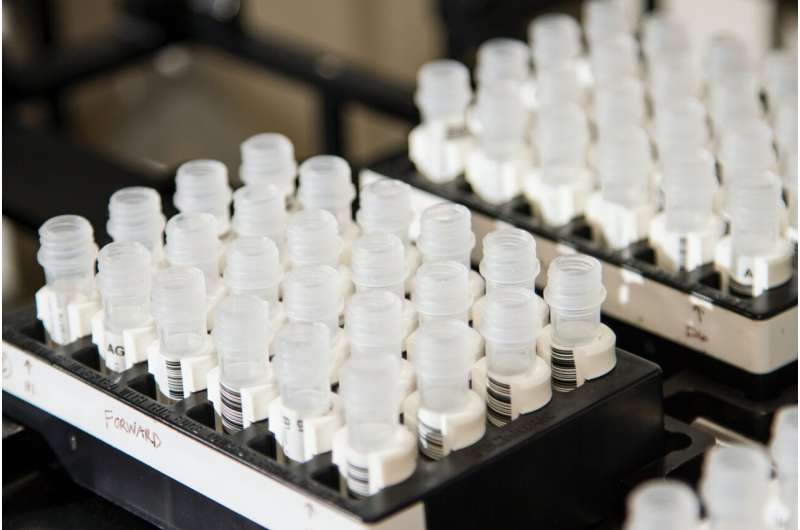Image source: Unsplash/CC0 Public Domain
New research published in journal Cellular and Molecular Gastroenterology and Hepatology Uncover common disease mechanisms of irritable bowel syndrome (IBS) and cardiovascular disease (CVD).
The study, led by Dr Leticia Camargo Tavares, a postdoctoral researcher at the Hypertension Research Laboratory in the School of Biological Sciences at Monash University, reveals new insights into the genetic basis of IBS, providing potential avenues for therapeutic intervention.
IBS is one of the most common gastrointestinal disorders worldwide, affecting up to 10% of the population, with a disproportionate impact on women.
It is characterized by a complex set of symptoms including abdominal pain, bloating, diarrhea and constipation. IBS severely impairs patients’ quality of life. Despite its widespread prevalence, the cause of irritable bowel syndrome remains unclear, limiting treatment options.
An international consortium of researchers consisting of Monash University (Australia), CIC bioGUNE (Spain), LUM University, IRGB-CNR, CEINGE, University of Naples Federico II (Italy) and University of Groningen (Netherlands)), expand Full investigation.
By analyzing data from two large European cohorts, UK Biobank and Lifeline, the team scrutinized the genetic profiles of 24,735 IBS patients and 77,149 asymptomatic individuals.
Their analysis identified four genomic regions, including two previously unidentified loci, associated with increased susceptibility to irritable bowel syndrome.
These genetic hotspots involve core pathways in gastrointestinal motility, intestinal mucosal integrity, and circadian regulation.
“While we have not yet conclusively identified the specific genes and mechanisms, these findings provide new insights into IBS pathophysiology and highlight potential therapeutic targets. Therefore, we expect subsequent studies to build on these findings,” said Dr. Tavares.
Additionally, researchers found significant associations between IBS susceptibility and various cardiovascular diseases, including hypertension, ischemic heart disease, and angina.
Professor Mauro D’Amato, senior author and research director at CIC bioGUNE and LUM University, described this new evidence as a most exciting result, highlighting the potential for shared treatment modalities.
In another important finding, the study revealed that IBS heritability (the weight of genes that determine a person’s risk of developing the disease) may be higher than previously thought. The authors say this may stem from their adherence to standardized classification criteria when describing IBS phenotypes, specifically the Rome Criteria of the Roman Foundation.
More information:
Leticia Camargo Tavares et al., Rome III criteria capture higher heritability of irritable bowel syndrome SNPs and highlight novel genetic links to cardiovascular traits, Cellular and Molecular Gastroenterology and Hepatology (2024). DOI: 10.1016/j.jcmgh.2024.04.002
Provided by Monash University
citation: Large-scale genetic study finds new link between IBS and cardiovascular system (2024, April 19) Retrieved April 19, 2024, from https://medicalxpress.com/news/2024-04-large- scale-genic-link-ibs.
This document is protected by copyright. No part may be reproduced without written permission except in the interests of fair dealing for private study or research purposes. Content is for reference only.
#Largescale #genetic #study #finds #link #irritable #bowel #syndrome #cardiovascular #system
Image Source : medicalxpress.com
